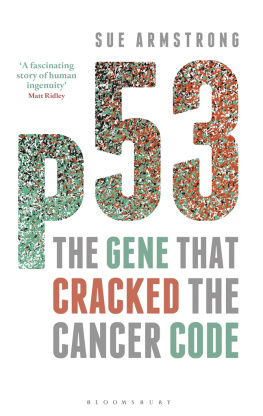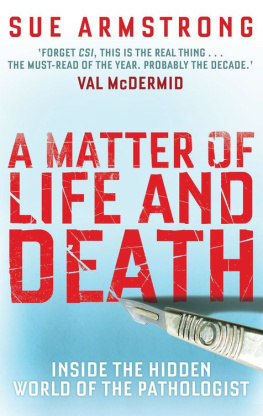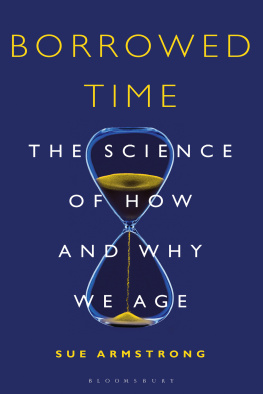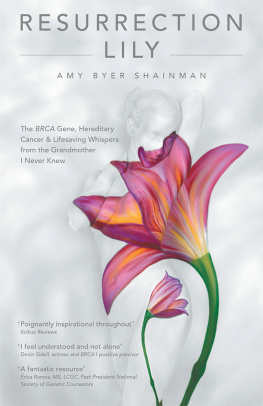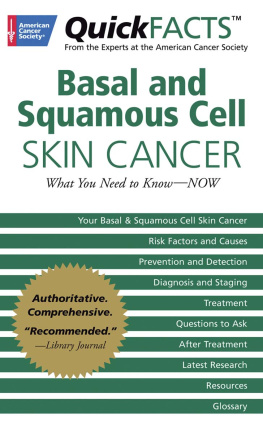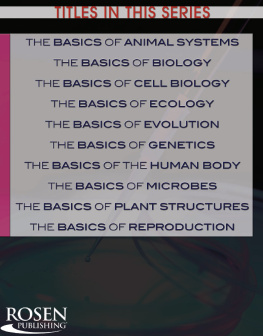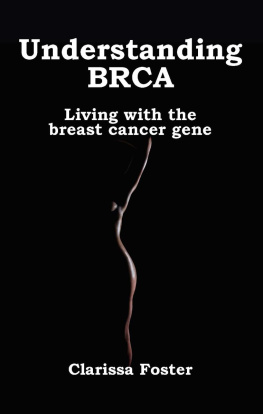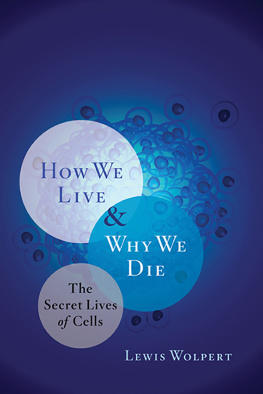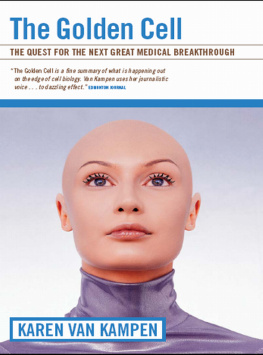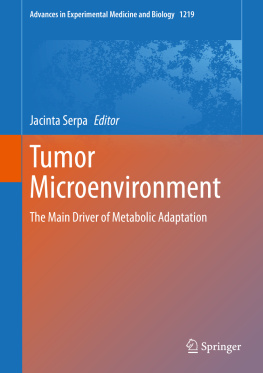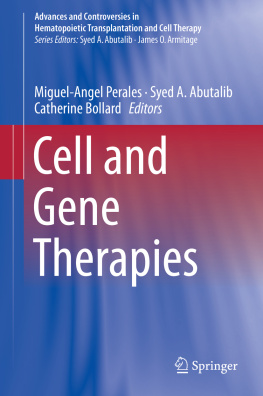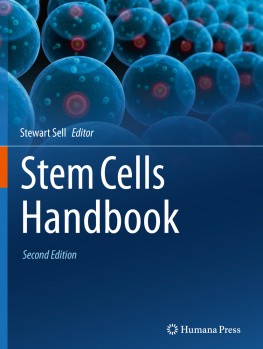
For Struan, Isla, Louise and Fraser
who, I hope and trust, will reap the full rewards
of this mighty endeavour in cancer research
Where do we [scientists] get our ideas, our inspiration for solving problems? Its the same place a composer gets an idea for a piece of music, or a painter gets an idea for a painting. It comes out of somewhere that you dont know. Its the same flash of inspiration, and its associated with the same colour and the same glory, for want of a better word.
Gerard Evan
***
Luana Locke is a vivacious woman on the threshold of middle age, with a round pretty face, large hazel eyes and a tumble of wavy dark hair to her shoulders. There is such an air of robust good health about her as she sits talking over a frothy cappuccino in a busy Toronto caf that if I didnt already know something of her story I would never suspect that her life has been dogged by sickness, heartache and loss. A survivor of cancer, Luana already had long experience of the disease by the time of her own diagnosis at the age of 24. When she was just three years old, her sister Manuela, aged nine, died of a brain tumour. Of that period, Luana can only really remember being left frequently with relatives as her parents visited the hospital, her mothers terrible grief when Manuela finally died and her own helpless desire to see her smile again.
I remember one time giving her a tissue and being upset because she blew her nose. I thought, No! I gave it to you to wipe your tears. I just remember her being really really sad. The little girl did not know then that her mother Giulietta was also sick. She and Luanas father Franco, a tile-setter by trade, had emigrated from Italy to Canada a few years earlier for what they intended to be a short spell taking advantage of the high demand for skilled craftsmen. They were planning to go home to Italy drawn partly by the fact that Luanas Aunt Rina, her mothers twin sister, had recently died of breast cancer at the age of 29, leaving four small children. But their plans were scuppered when their own daughter was diagnosed with a brain tumour, and then Luanas mother began her own treatment chemotherapy and radiation for breast cancer.
She had a mastectomy, and I do have some very clear images of that time, says Locke. I remember watching my mother as she was getting dressed, putting on her make-up, fixing her hair and slipping her prosthesis under her shirt. All this seemed normal, just part of life, to the small girl, until her mothers cancer, which had responded to the initial treatment, returned and spread to her bones and killed her. Luana was six years old, and she speaks poignantly of the heartache and emptiness that filled their home, reduced now to her father, her brother David and herself, and of the fear that gripped her in bed at night that this monster might strike again and take more of her loved ones.
In fact the next person to be diagnosed was Locke herself. She was 24 years old and eight months pregnant when she noticed a tiny scab on her nipple. It would slough off from time to time leaving a small, weeping sore that would scab over again, but never seemed to heal. Keen to breast-feed her baby when it arrived and anxious therefore to clear up the spot, she eventually went to her doctor, who gave her some ointment. No one she saw as part of her routine maternity care seemed concerned, but when the spot appeared to be getting bigger despite a variety of ointments, her doctor referred her to a dermatologist, Donna McRitchie, who decided to take a biopsy.
Dr McRitchie said, It will probably take about a week to get the results back, and well call you, says Locke, looking back across the years. I remember going and sitting in my car and starting to cry. Even though I didnt feel anything she put a needle in to freeze the area I remember hearing the clipping of the scissors and I knew that she was cutting tissue, and it really affected me in a weird kind of way. So I got into the car and cried... But then I stopped and I was so angry with myself. I thought: You baby! Think what your mother went through; she had her breast removed, for the love of God, and here you are weeping like a baby because they took a little piece of skin off your breast. Like, grow up and get over it! I was just kind of scolding myself, right? Snap out of it, off you go.
Luana was not ready to admit her fears even to herself. A naturally optimistic person, she hung on to the belief that lightning could not strike again in the same spot, and whenever a morbid thought entered her mind she would squash it, telling herself, Thats ridiculous; whos ever heard of breast cancer manifesting itself that way? Theres no lump; theres nothing there; youre 24 years old... Gosh, I scolded myself a lot in those days! she laughs. But the results came back unusually fast, and they were serious: Luana had Pagets disease, a type of breast cancer that is often mistaken for eczema until the tumour growing secretively below the sore is advanced. Given her family history, her oncologist recommended the most radical treatment, mastectomy.
The diagnosis was a shock, but one of Luanas first concerns was for her father. Telling him was one of the hardest things I ever had to do, she comments quietly, looking down and stirring the froth in her coffee cup. Hed already been through so much and it was just a journey I didnt want him to have to travel again. In the event, Franco put on a brave face, urging his daughter and her distressed husband Paul not to look back to her mothers and sisters experience nearly 20 years earlier. Medical science has come such a long way since then, he said.
Within weeks of Luanas diagnosis, her baby, a boy they named Lucas, was delivered by Caesarean section; her mastectomy was performed a few days later. Examination of the tissue removed at surgery revealed a highly aggressive tumour, and Luana subsequently had her other breast removed as a precautionary measure. Her surgeons found a pre-cancerous lesion here too. During all this, Luana coped with her own disease, with the painful memories it inevitably stirred and with the dreadful uncertainties of the future by focusing on her new baby. It was all about, okay, I know I have to survive, so Ill do whatever it takes... I really just poured myself into nesting, she says. The worst thing that I allowed myself to contemplate was not my death that was too large, too big an issue for me to face, too big a fear, I guess... the farthest I allowed myself to go in terms of my biggest fear was losing my hair. Ive always had long hair, and so I allowed myself to go there, but I didnt allow myself to think of death... Or not being here for my child, no, not at all. She shakes her head.
Luana is now 41, and she has not had a recurrence of her cancer, though in the intervening years four other members of her immediate family in Italy and America have had tumours removed, and her brother Davids little boy Marco died of cancer, aged five. Though no one knew it until relatively recently, the root of the familys problem is a mutation in a gene that goes by the prosaic name of p53 bestowed on it simply because it makes a protein with a molecular weight of 53 kilodaltons.
When it was discovered in 1979, the scientists involved had little idea of the huge significance of their finding: p53 has gradually revealed itself to be one of the most important players in the drama that is cancer a master switch in our cells whose main function is to prevent tumours arising when their DNA is damaged. It has become the most studied single gene in the history of molecular biology, generating over 70,000 research papers to date and spawning a community of researchers that, notwithstanding the customary competition between scientists, is unusually collaborative. Every two years they come together from around the world for a scientific meeting, a few days of bracing, esoteric debate which adds new bits to the mighty jigsaw and fits some old ones into the existing picture.
Next page
